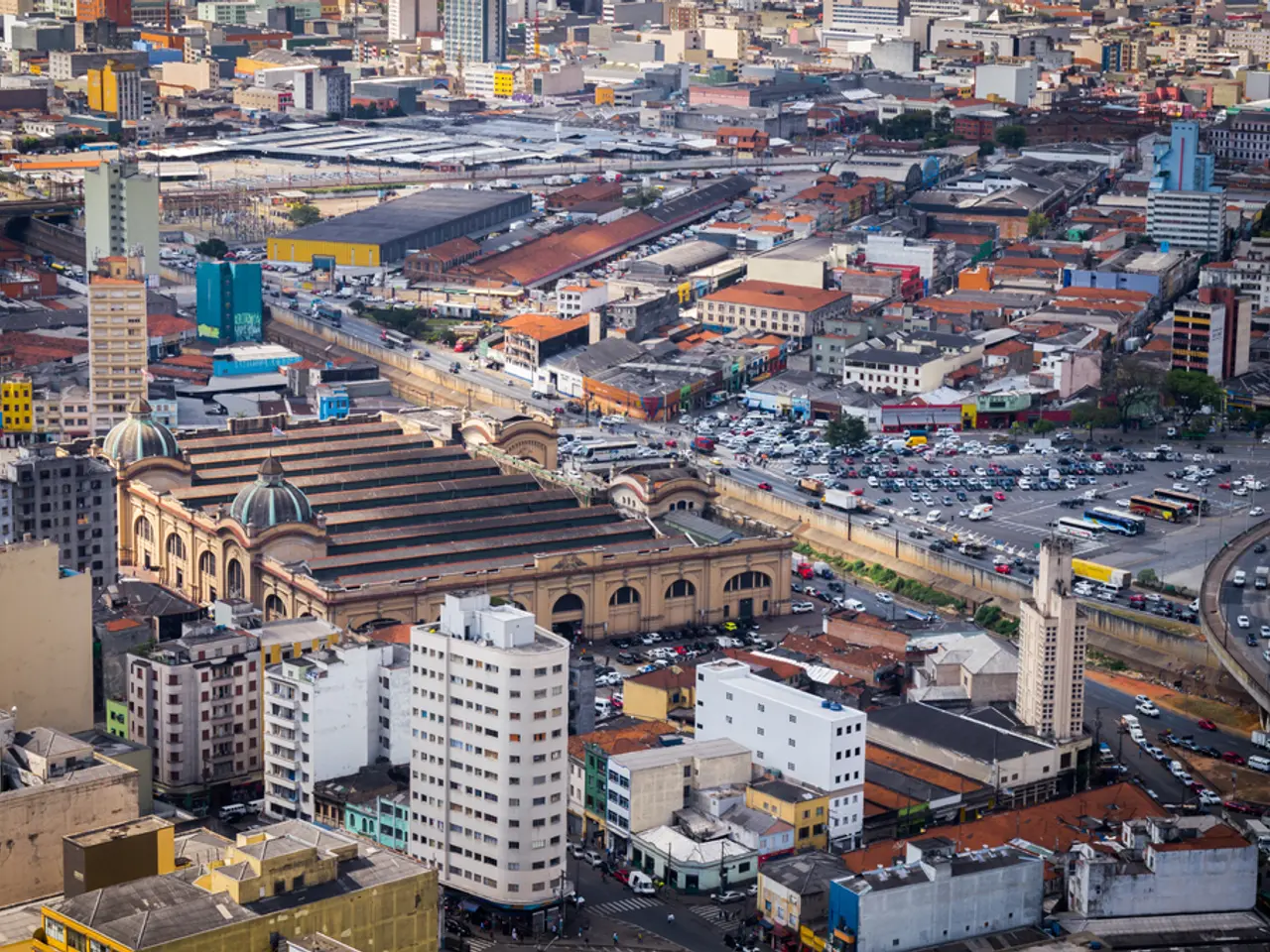Urban areas in North Rhine-Westphalia experience overcrowding of investments
In North Rhine-Westphalia (NRW), a significant investment backlog has emerged in various sectors, particularly education, health, and infrastructure. Stefan Zimkeit, the SPD's financial expert, and the German Trade Union Confederation (DGB) have put forward a series of targeted measures to tackle this issue.
The proposed solutions focus on increasing and sustaining public investment, modernizing and expanding schools, upgrading healthcare facilities, improving infrastructure, streamlining bureaucratic processes, and promoting social and economic equality.
Zimkeit emphasizes the importance of prioritizing higher and more consistent funding from both state and federal levels to close the gap in maintenance and modernization of public facilities. He suggests establishing long-term financial planning to avoid fluctuating investment levels that hinder project completion.
In the education sector, the proposals aim to invest in renovating existing school buildings to improve safety, accessibility, and digital infrastructure. They also suggest expanding capacities by building new schools or additional classrooms to accommodate increasing student numbers and enhancing digital infrastructure in schools to support contemporary teaching methods and equitable access to technology.
For healthcare facilities, the focus is on allocating funds for refurbishing hospitals to meet modern health and safety standards, investing in equipment and technology upgrades to enhance patient care, and supporting training and hiring of medical staff to improve service quality.
In terms of infrastructure, the recommendations include enhancing public transportation networks to better connect urban and rural areas, maintaining and modernizing roads, bridges, and other public utilities to ensure safety and efficiency, and investing in sustainable infrastructure projects to promote environmental goals.
To streamline bureaucratic processes, the proposals suggest simplifying planning and approval procedures for public construction projects to accelerate implementation and improving coordination between different governmental levels and agencies involved in public investments.
Lastly, the measures aim to promote social and economic equality by focusing investments in disadvantaged and structurally weaker regions to reduce inequality and ensuring projects create local jobs and foster economic development.
According to Zimkeit, the situation is dire for many schools, hospitals, bridges, digital infrastructure, housing construction, and climate protection in NRW. He asserts that municipalities in NRW cannot finance the necessary new school buildings and renovations alone.
The DGB study, commissioned by the DGB and conducted by the "Research Group for Structural Change and Financial Policy," estimates an investment need of 156 billion euros over the next ten years for North Rhine-Westphalia (NRW). The study offers feasible implementation proposals for climate protection, infrastructure, housing, health, and education.
Zimkeit urges the CDU-Green government to address the investment backlog with targeted measures immediately, warning that the black-green state government in NRW runs the risk of falling behind. He also points out that the high old debt burden of many municipalities in NRW remains unsolved by the state government. The ten billion euros earmarked for investments in the NRW state budget is deemed too low by Zimkeit.
The DGB State Chairperson Anja Weber asserts that public investments can amortize in a few years and should not be viewed as costs or debts. She believes that these investments will contribute to the long-term prosperity and development of NRW.
The proposed measures, if implemented, could facilitate robust, long-term public service improvements in NRW, addressing the significant investment backlog in the education, health, and infrastructure sectors.
Business leaders and educators might collaborate to fundraise for education sector improvements, leveraging financial expertise to secure investments for school renovations, digital infrastructure enhancements, and capacity expansions.
In line with the DGB's recommendations, finance professionals could also explore green investments in sustainable infrastructure projects, such as public transportation networks and renewable energy installations, to support both environmental goals and economic development in NRW.




